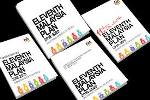Malaysia: Can the 2030 Agenda work with neoliberal planning?
Published on Fri, 2016-08-12 18:56
The incorporation of the 2030 Agenda and the SDGs into the national development plan-- Eleventh Malaysia Plan 2016-2020 –and Malaysia’s approach to the SDGs demonstrate the same neoliberal biases, aims and agenda of all development plans since 2009. Will it belie the same fetishes for GDP or market/corporate stratagems instead of real socio-economic development plans? Does it package structural adjustment and austerity plans in the guise of ‘rationalizing’ and ‘integrating’ limited resources, funding and collaborative programmes? Will the imaginary crisis of a ‘middle-income trap’ continue to occupy the policy agenda, as opposed to the real crisis of the increasing income divide between the few who have and the many who have not? The Malaysian Government has tied implementation of the Sustainable Development Goals (SDGs) to its Eleventh Malaysia Plan (11MP) 2016–2020 as the centrepiece and guiding policy of national development efforts. The Tenth Malaysia Plan, the New Economic Model (NEM), launched in 2009, and the Economic Transformation Programme (ETP), had all some common aims, such as: to achieve a ‘high-income’ goal of per capita gross national income of USD15,000 by 2020; to attract more foreign and domestic direct investments; and to liberalize, deregulate, and privatize more of the national economy. But while much rhetoric is duly spewed on ‘distribution’ issues, there appears very little of significance that actually gets carried out in relation to addressing socio-economic inequality, deprivation and marginalization. Source: Malaysia National Report, Social Watch Report 2016. » |


